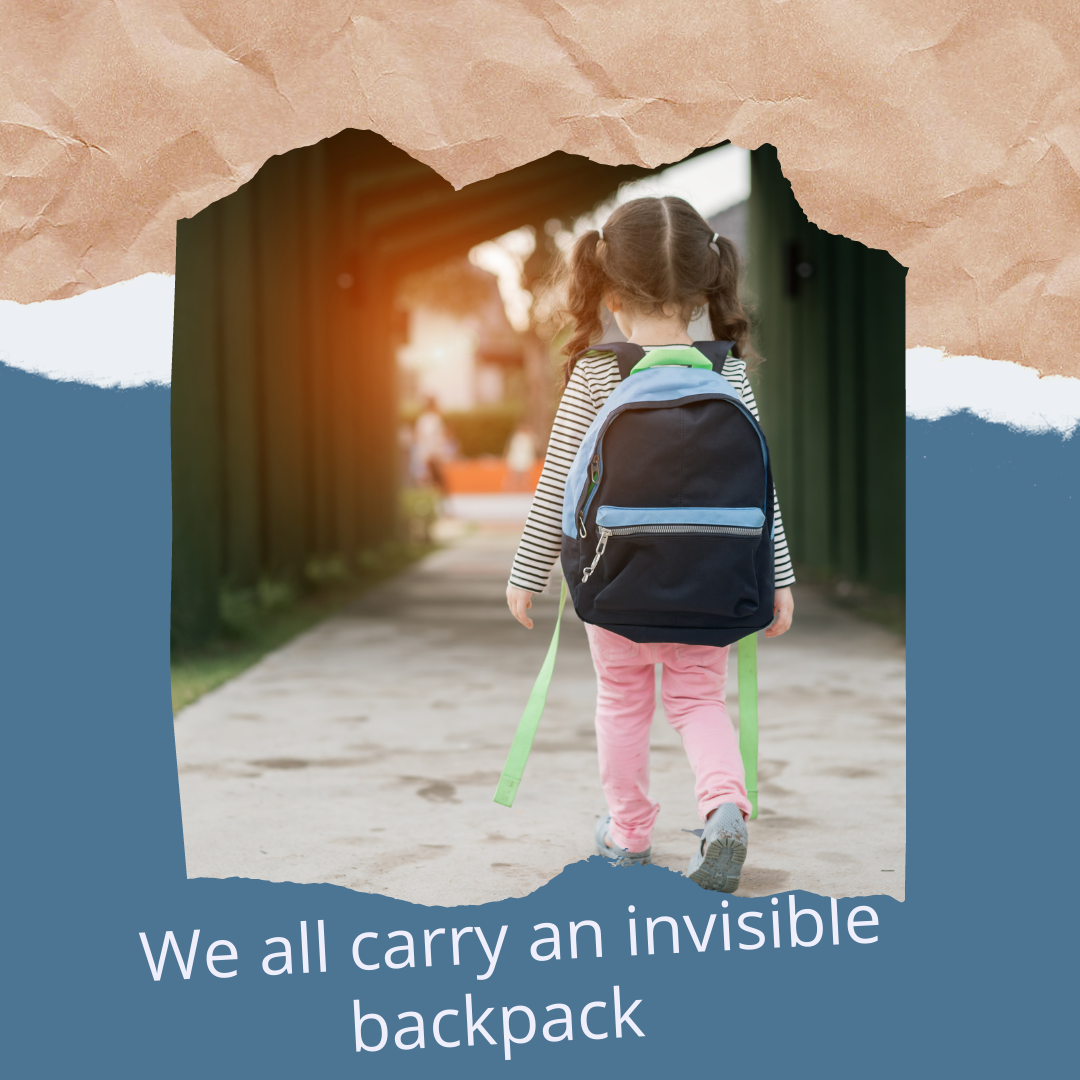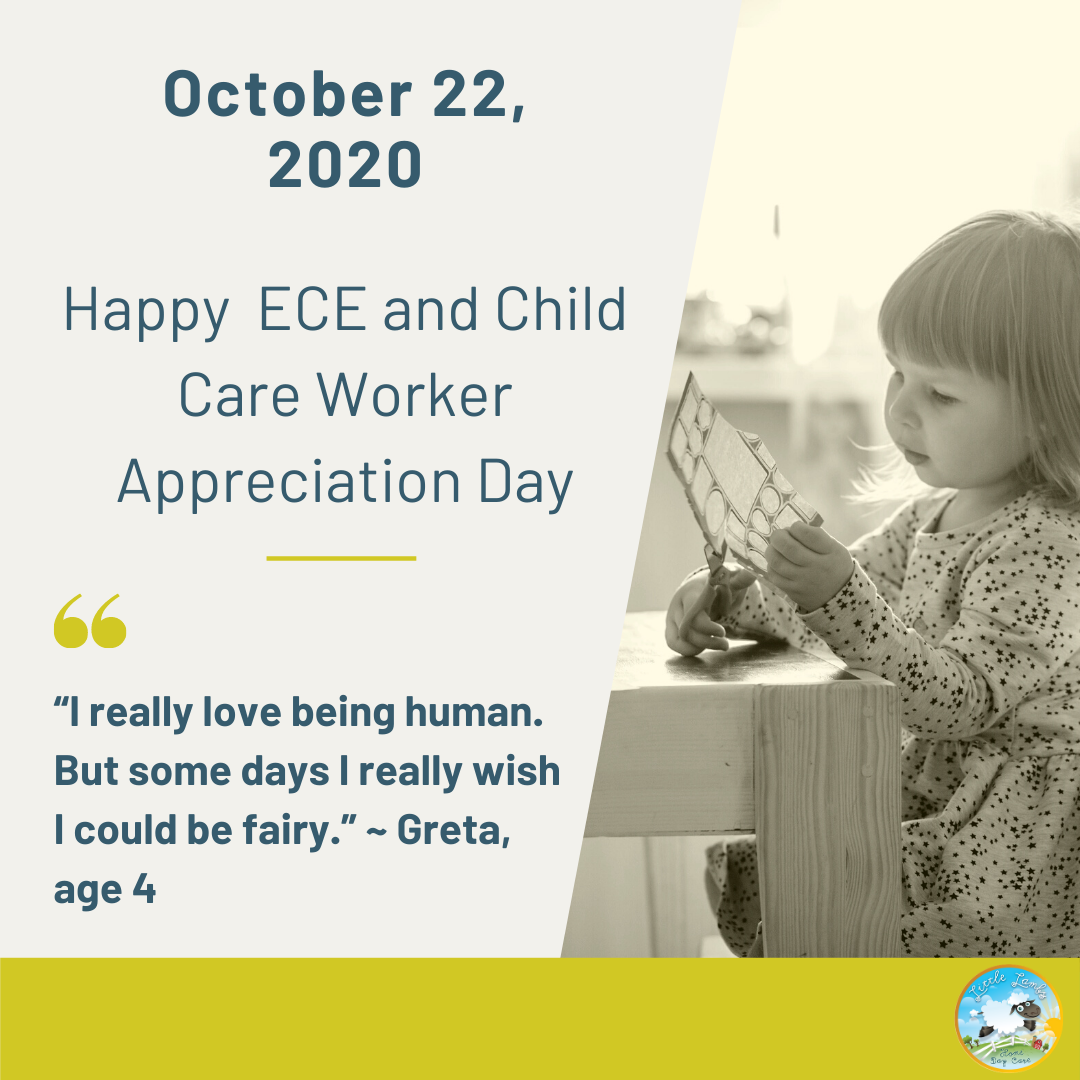Build Strong Resilient KidsYesterday I spoke about stress. Specifically, the unpredictable stress we've all be feeling since March. COVID-19 has affected many aspects of our daily lives and how we create learning environments in our programs. As adults, we can unknowingly be sharing our stress through our body language, tone of voice, facial expressions, level of participation, and activity. To dive deeper into how we can support children to deal with the added stress, let's rewind a bit and start by unpacking our "backpacks." I'm a big fan of the "backpack" concept. It's the idea that each person (children included, of course) wears an invisible backpack. In this invisible knapsack are learned behaviours and beliefs, genetic predispositions, health factors, emotional factors, and cognitive ability. Just like we see with real backpacks, some individual's backpacks are easier to carry. They are in good condition, with no broken straps or zippers. In addition to being in "better" condition, some backpacks are simply fuller than others. We can unpack "fuller" as the idea of privilege. Privilege comes in many forms, including:
Each child who enters our doors each day has their own invisible backpack. When we recognize that we too have predispositions and external factors affecting our behaviour, we better support self-regulation. We have heard many times that stress is one of life's realities and that a certain degree of stress is important and positive; it challenges the individual to learn and grow. In addition, stress factors are unique, and adults should be sensitive to each child's stress factors, realizing that they have meaning for the child. Never trivializing a child's stress by telling the child to stop worrying, or there is nothing to worry about. (B.Pimento & D.Kernested. 2015 p. 556) Regardless of the cause (COVID-19, lack of sleep, hungry, peer issues, family dynamics, insecurity, etc.), stress management is key. Building resilience is crucial and can be understood as the ability to:
Identifying stress in children Yesterday I provided simple examples of how children can exhibit stress. While some stress markers are easily distinguished, sometimes identification relies on caregivers' observation skills and sensitivity to the child. Identifying that a child is feeling stressed is only the beginning. Open and effective communication between caregivers and parents is critical to understanding the underlying cause(s) and deciding how to work together to support the child. As a refresher, here are some common ways children exhibit stress:
"How Does Learning Happen?" Ontario's Pedagogy for the early years defines Well-Being as; the importance of physical and mental health and wellness. Therefore as caregivers, our role is made even more critical when a child exhibits signs of stress. Developing coping skills contributes to children's self-control and feelings of self-worth. How children learn to cope with stress in their early years builds resilience they will use for their lifetime. As caregivers, we can help children understand the mind-body-emotion interconnection as there are many physical symptoms as well. By creating strategies to reduce stress, caregivers can reduce the overall stress for children in their programs. Creating Stress Awareness:
Implore coping strategies
Building Observational Skills To help children, we need to "know children." We need to help unpack their backpacks to understand how we can best support them. For example, a child who didn't sleep well last night and didn't feel like eating this morning will likely walk through our doors potentially unprepared to handle an adverse social situation. Knowing this, we can connect how the child's body feels to how the child reacts (or could react). Through open communication with parents, we can observe the child's daily interactions prepared to step in and support conflict resolution BEFORE it becomes an issue. Right now, along with all the everyday stressors, we have the added stress of a global pandemic. Children are overhearing our conversations; they pick up on our worries, and they are potentially dealing with new family dynamics. As caregivers, our role in building trusting, responsive, and caring relationships has never been more important. So again, as I spoke of in yesterday's "Happy ECE Appreciation Day" post. You cannot pour from an empty cup. You need to take care of yourself and your mental health. Do not put a bandaid on your stress. Talk to someone, journal, get physical activity every day, start a hobby, or seek professional help. Breathe a little more Hygge into your life, xoxo Kristina
0 Comments
BUT...Press Pause for a moment, Let's take a moment to pause and reflect. 2020 has been different! New years resolutions such as being more organized, utilizing the 100+ pins on your Pinterest board, and being more active, quickly fell to the wayside of all things "COVID-19". This morning, I listened to a favorite science podcast of mine while driving back from my daughter's 6:00 am gymnastics practice (it's an ungodly time of the day to be functioning). They were discussing the impacts of COVID-19 on individuals and how these impacts affect communities and businesses. To paraphrase, "our brains have been telling our bodies to run away from a proverbial tiger since March." The areas of our brain associated with Fight, Flight, and Freeze (the limbic system if you want to get sciency) have been triggered almost continuously since March. This increased level of cortisol and adrenaline, not surprisingly, is quite draining. The effects can be felt in many ways, and their impact can include:
As a self-proclaimed recovering procrastinator, this is a struggle for me right now! |
Early Years at Home When we refer to home we refer to a feeling of welcome, family, comfort and belonging. Licensed home child care offers the feeling of "home" with the benefits of early years pedagogy. Categories
All
Archives
June 2023
©Little Lambs Home Daycare
©Kristina Schwartz |


 RSS Feed
RSS Feed